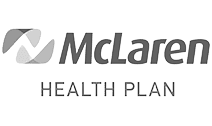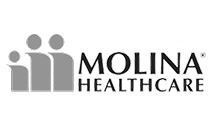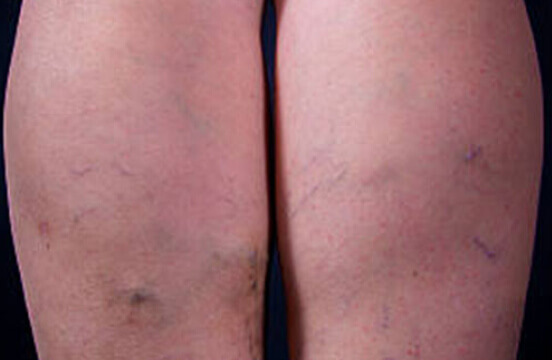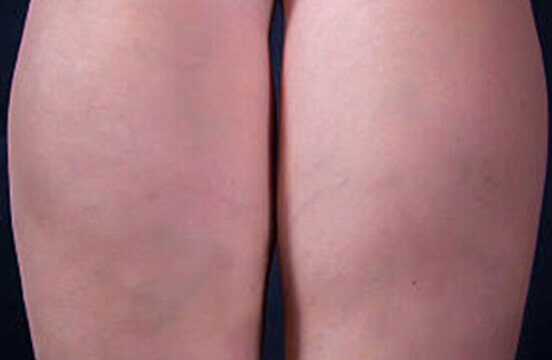What Are Veins?
Veins are hollow flexible tubes that contain flaps inside called valves. When muscles contract, those valves open and allow blood to flow through the veins. On the contrary, when your muscles relax, the valves close, keeping blood flowing in one direction through the veins. The closer veins are to your heart, the larger they are.
For individuals suffering from painful veins or venous diseases, our Michigan vein doctor, Dr. Zmily, offers effective vein treatments at his four practice locations — Detroit, Rochester, Taylor, and Troy, MI.
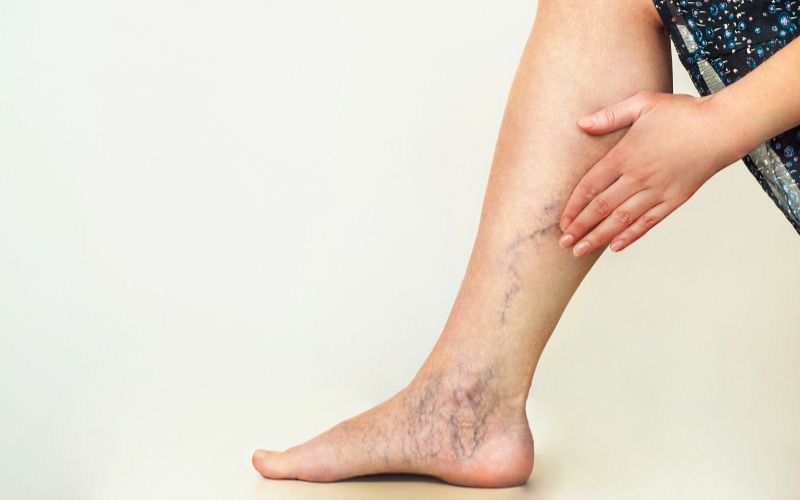
Common Vein Conditions
Deep Vein Thrombosis
Deep vein thrombosis (DVT) is a blood clot that occurs in a deep vein, typically in the legs. While it’s not a life-threatening issue, the blood clot has the potential to break free and travel throughout the bloodstream. When traveling through the bloodstream, it may become lodged in the blood vessels of the lung, which can be a life-threatening condition.
Venous Ulcers
Venous ulcers are sores on the leg that are slow to heal because of poor blood circulation. They’re located below the knee and are typically found on the inner part of the leg, right above the ankle. When left untreated, they can lead to more serious problems.
Varicose Veins
Varicose veins become stretched out from the blood vessel valves leaking. They can appear twisted and bulging and swollen above the surface of the skin. Suffering from varicose veins can cause aching pain, throbbing, and discomfort.
Spider Veins
Spider veins are closer to the surface than varicose veins and can have the appearance of spider webs or tree branches. They’re less of a health risk than varicose veins but can cause an uncomfortable feeling in the legs.
Chronic Venous Insufficiency
Chronic venous insufficiency is caused by the pooling of blood, chronic leg swelling, increased pressure and pigmentation or discoloration of the skin, and leg ulcers. It occurs when there are faulty valves in the veins.
Lymphedema
Lymphedema is a condition causes swelling in the body’s tissues, often in the arms or legs. It develops when the lymphatic system, a part of your body’s immune system, doesn’t function as it should. The lymphatic system helps fight infections and diseases by producing and transporting lymph, a fluid containing white blood cells, throughout the body. When the lymphatic system is damaged or blocked, it can lead to an accumulation of lymph fluid, causing the swelling of lymphedema.
Signs & Symptoms
Many vein conditions share similar symptoms. If you’re experiencing any of the following, we suggest making an appointment with our Michigan vein doctor, Dr. Zmily:
- Severe aching or pain
- Itchiness
- Swelling
- Cramping
- Restlessness
- Skin changes
- Heaviness or tenderness
- Discolored skin
- Open sore or ulcers
Venous Disease Risk Factors
Certain factors may increase your chances of developing venous disease, including:
- Genetics
- Obesity or excess weight
- Lack of exercise
- Current or previous pregnancies
- Leg trauma or injury
- Prolonged sitting or standing
- Smoking
Frequently Asked Questions
There are several treatment options, both surgical and nonsurgical, for venous diseases. With treatment, the goal is to ease or reduce symptoms and reduce the risk of complications or further health issues developing.
Treatment options at Suburban Vein Center include:
- Venous ablation therapy
- Microphlebectomy
- Sclerotherapy
- Varithena injections
- VenaSeal
- Vascular ultrasound studies
Arteries and veins are the body’s main types of blood vessels. Arteries are blood vessels that carry oxygen-rich blood away from the heart to the body, whereas veins carry blood that’s low in oxygen from the body back to the heart for reoxygenation.
If you’re experiencing vein pain in your arm, it may be superficial phlebitis. The thrombus in your vein causes irritation and pain, which can block blood flow. Phlebitis can occur in both your superficial (surface) or your deep veins. The condition is rarely serious and typically resolves quickly.
If you have any concerns about your vein pain, it’s always best to consult with a doctor. At Suburban Vein Center, our Michigan vein doctor can discuss your symptoms and help determine the cause of any vein pain.
Schedule an Appointment With Our Michigan Vein Doctor
While some vein conditions don’t present a risk to your health, it’s always best to consult with a professional. At Suburban Vein Center, our Michigan vein doctor will help you get to the bottom of your vein pain and suggest treatment if necessary. To schedule your appointment, call our Michigan office at (248) 480-0368. You can also request more information through our online contact form.
For our patient’s convenience, we have four locations throughout Michigan: Rochester, Taylor, Detroit, and Troy.











